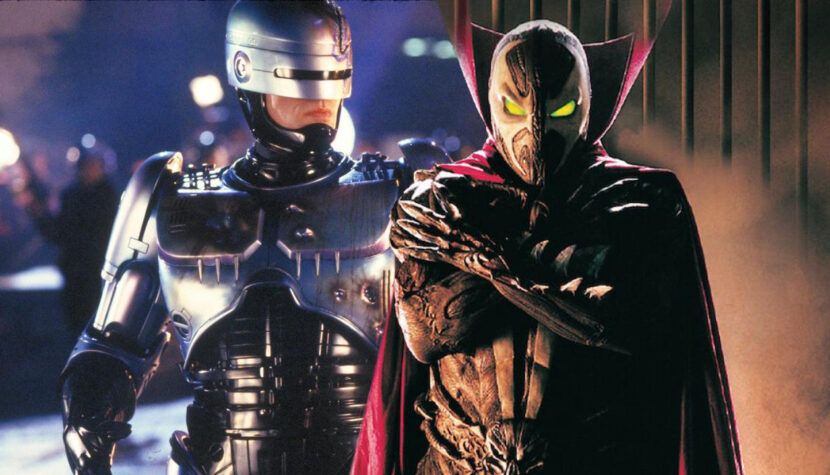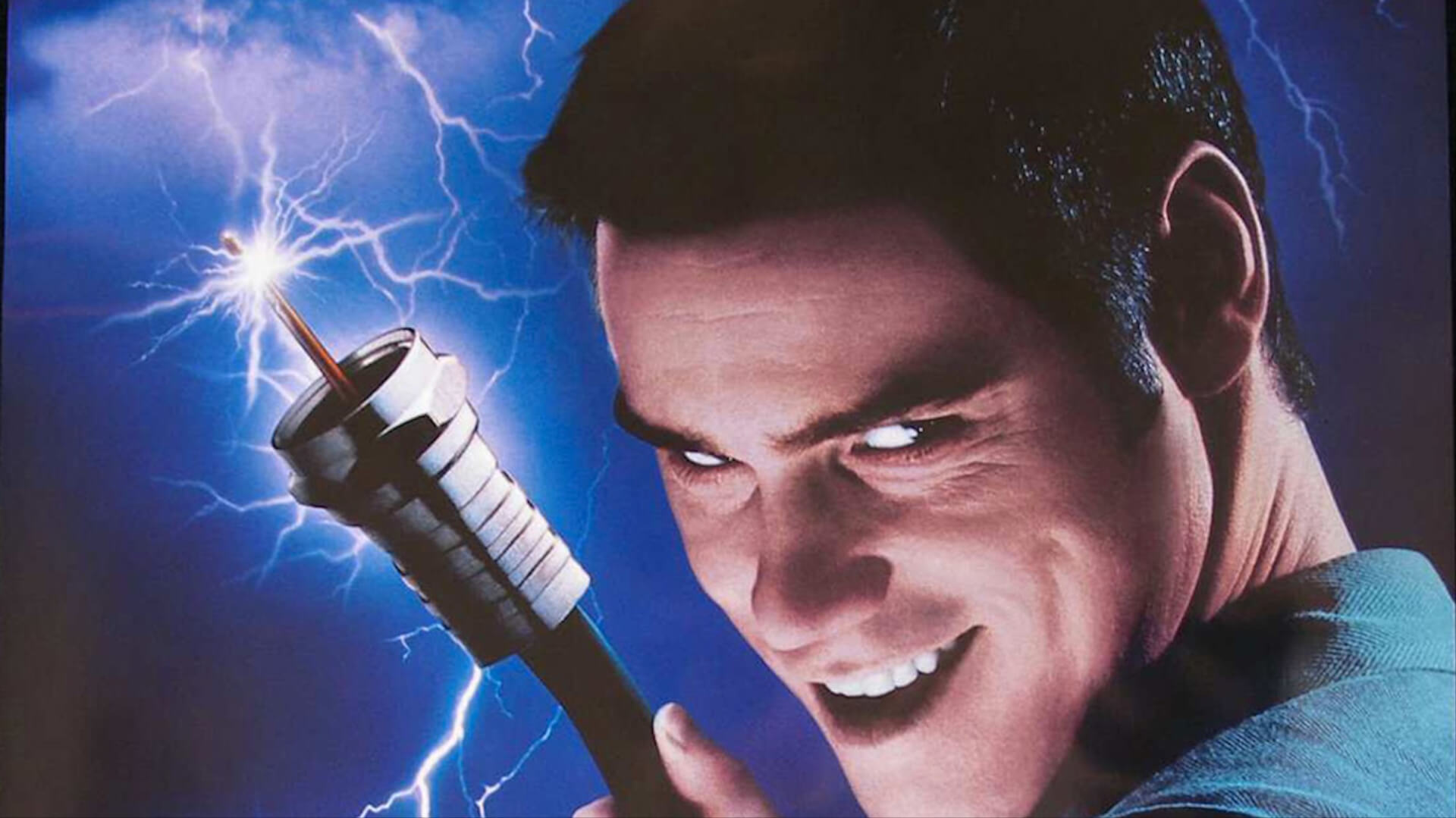90s Movies That Are BETTER Than We Remembered

How often have you changed your opinion about a movie you watched in the past? There are probably several, if not dozens, of such titles, right? While most often a change in perception of a movie tends to be negative, there are also cinematic creations that, like wine, gain value with time. In this compilation, I’ll list movies from the 90s that I previously perceived as “trash,” but over time, I found something in them that caused me to change my mind, and now I rate them much higher.
SPAWN (1997)

1997 was a year of many groundbreaking titles for the history of cinema. Titanic, The Game, The Fifth Element, Contact, Gattaca, another Alien, and another Jurassic Park are just a few films that graced the big screen during that time. Meanwhile, one of the most anticipated productions of 1997 was a little-known film called Spawn. All because Spawn was an adaptation of the highly popular comic book series by the acclaimed artist Todd McFarlane. Although the production, directed by Mark A.Z. Dippé, doubled its budget at the box office, it was literally torn apart by both audiences and critics. Actors, screenwriters, and especially the special effects team were heavily criticized.
I didn’t watch Spawn in 1997. I saw it a few years after its release, and I remember not being satisfied with the viewing experience. I returned to the cinematic version of the adventures of the heavily burnt Colonel Al Simmons quite accidentally fairly recently. While looking for a title for a weekend evening, I noticed that on the DVD cover of Spawn, there was a quote from Roger Ebert’s review, who described Mark A.Z. Dippé’s creation as amazing. Without much hesitation, I popped the disc into the player and rewatched Spawn after years. I still believe that in terms of plot, this production is a monstrous mess and a festival of absurdities. However, my assessment of Spawn has changed for the better when it comes to acting and special effects. Spawn combines excellent, knowingly campy elements with those that are totally absurd and unsuccessful. It is both, as Roger Ebert wrote, amazing in terms of special effects, and simply tragic. In summary, the 1997 adaptation of McFarlane’s comics now appears to me primarily as an inventive experiment, and I look at it with much kinder eyes.
THE CABLE GUY (1996)

One of the biggest acting stars of the 90s was undoubtedly Jim Carrey. This rubber-faced comedian gained immense popularity with roles as endearing goofballs or misfits whom it was hard not to root for. In 1996, Ben Stiller decided to expand Carrey’s film portfolio and offered him the role of Chip Douglas, the cable guy. Most audiences at the time (including myself) expected The Cable Guy to be another showcase of Jim’s hilarious antics. Did we not get that? Oh, we got it alright! However, none of us were prepared for the fact that the antics of the world’s most popular comedian could also be tinged with darkness and a certain kind of sadness, and beyond laughter, evoke shivers of consternation and unease. Although The Cable Guy didn’t turn out to be a box office bomb, it would be untrue to say that it was a success. If, like me, you had rather negative memories associated with the first viewing of Ben Stiller’s second feature film, it really is enough to give it another try. Because today, it’s much easier to understand The Cable Guy, and even discern prophetic elements in it. It’s also easier to appreciate Jim Carrey’s magnificent performance. I feel foolish that it took me about 15 years to realize that Chip Douglas is one of Carrey’s most important portrayals in his entire filmography. In my defense, I’ll add that I wasn’t the only one who didn’t notice this. All because The Cable Guy is one of those films that are ahead of their time.
ROBOCOP 2 (1990)

Let’s revisit the early 90s. It was during this period that the sequel to one of the most unexpected action hits of the 80s, RoboCop, premiered. This sequel was something that Paul Verhoeven himself desired, albeit not as swiftly as Orion Pictures wished. Consequently, RoboCop 2 was helmed by Irvin Kershner, a seasoned craftsman and a true Hollywood specialist in directing sequels to popular films. How did he fare with Alex Murphy? I used to have a negative opinion, but today I don’t view his film in such a light anymore. I’ve come to understand that successful sequels don’t necessarily have to reinvent the wheel. Irvin Kershner is a director who adeptly recognizes the styles of the films he continues, and RoboCop 2 is the ultimate proof of this. It appears that the sequel to Verhoeven’s hit absorbed the essence of what made the original successful. We still encounter sharp satire, extravagant action, and an incredibly dark atmosphere. Additionally, the successful, for its time, final showdown scene between RoboCop and the second RoboCop adds to the appeal. Overall, it’s a genuinely decent sequel. I believe the lack of a positive reception towards Kershner’s film solely stems from the uncertainty surrounding what audiences wanted from future RoboCop installments. Just look at the third installment of his adventures to understand that the best strategy was indeed what Kershner did, which was to replicate the successful motifs from the first film.
ROCKY 5 (1990)

I vividly remember renting all the parts of Rocky from the local video rental store at the end of the 90s. It was my first encounter with the legendary Italian Stallion. With excitement on my face, I watched the successive stages of his boxing career. After the fourth installment of Rocky, I was ecstatic. It had to be something amazing and inspiring for every growing kid and for all the adult kids in the world, I thought. I remember being incredibly excited that I still had one more, the fifth installment of Rocky, to watch. However, what I saw then completely disappointed me. Balboa didn’t resemble himself; he was somehow… ordinary, poor. And he didn’t step into the ring to fight for the shiny belt. I didn’t revisit Rocky 5 until the premiere of Rocky Balboa (2006). That’s when I understood that the fifth movie was definitely better than I remembered. Yes, it was still difficult for me to understand how the multiple world champion practically lost all his wealth overnight, how Paulie was so naive and gullible, and how Rocky didn’t notice Tommy Gunn’s perfidy all along. However, these flaws didn’t overshadow the incredibly wise message that this movie aims to convey, which fits perfectly into the life story of the boxing champion. There’s one more thing worth noting about Rocky 5. This production unknowingly paved the way for both Rocky Balboa and the Creed spin-off series, both of which became immensely successful.
ARMAGEDDON (1998)

The end of the 90s and the beginning of the 2000s was a period when my film awareness and sensitivity were forming. I belonged to those who sought something ambitious, intelligent, alternative, perhaps even a bit snobbish in cinema. Armageddon was a complete contradiction to all of that. I despised this bombastic, pathos-filled, redemption-seeking, sacrifice-making, and romanticized blockbuster by Michael Bay, and whenever I heard the famous “I Don’t Want to Miss a Thing” by Aerosmith anywhere, it literally made me nauseous. I realized how much I had missed out on in the second half of the first decade of the 21st century when I first saw the first Pirates of the Caribbean movie. It dawned on me then that cinema is also entertainment, and even if a film is filled to the brim with kitsch and/or lacks logic, but you still have a great time watching it, and additionally shed a tear over the fate of its hero/heroes at the right moment, then perhaps applause is due to the creators of that production. So, I revisited Armageddon and had a blast. I laughed, cried, bit my nails, jumped during each explosion. Completely disregarding all the silliness, of which there’s probably more in Bay’s work than the explosions mentioned, you’ll see pure joy in creating cinema. Although supposedly, Michael Bay and the crew had only 16 weeks to shoot Armageddon.
JACKIE BROWN (1997)

Quentin Tarantino, of course, needs no introduction today. However, what still needs to be introduced is Jackie Brown, the titular character of the third film by the creator of Pulp Fiction. I mentioned Pulp Fiction for a reason. It’s because of this production (and indirectly through True Romance and Reservoir Dogs) that for many years, Jackie Brown seemed to me to be the least interesting in the portfolio of this acclaimed director. This was because, while watching Jackie Brown once with anticipation, I was waiting for Quentin Tarantino’s characteristic ultra-brutal inserts, genre-bending antics, or cheeky humor, instead of focusing on the essence of this work, which is its content. Upon a rewatch, much more consciously, I realized how mature, wise, and balanced this film is, and how Quentin Tarantino could be an even better filmmaker if he were to restrain his penchant for showiness in favor of character development and more realistic plots.

